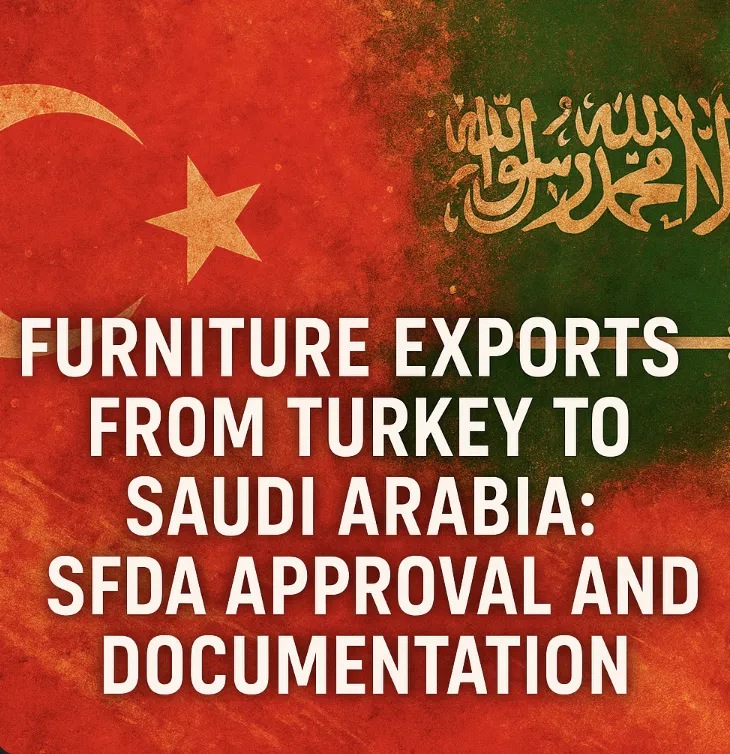One of the most crucial issues for manufacturers wishing to export furniture from Turkey to Saudi Arabia is obtaining the correct documentation and conformity approvals. The primary responsible agency for furniture exports is SASO (Saudi Standards Metrology and Quality Organization), not the SFDA (Saudi Arabian Food and Drug Administration). However, healthcare-focused institutions like SFDA can also be involved in some corporate projects, particularly in areas such as hospitals, offices, and educational institutions. All processes required for furniture export are managed by SASO, and products must be approved through the Saudi Conformity Assessment Program (SABER). This system operates electronically, and exporters must have a SABER account. The required documents for export are: Certificate of Origin: A certificate of origin approved by the Turkish Ministry of Commerce or the Turkish Chamber of Commerce is required. This document proves that the product was manufactured in Turkey. Invoice and Packing List: The commercial invoice and detailed packing list should be prepared for uploading to the SABER system. The invoice must include the product name, quantity, unit price, total amount, and payment terms. SASO Certificate of Compliance: A certificate certifying that the products comply with Saudi standards. This certificate is issued either by the manufacturer or by an accredited testing laboratory. For example, the BS 5852 fire retardant test is mandatory for office and hotel furniture. Test Reports: Technical tests such as the BS 5852 fire retardant test, EN 1021 hygienic surface test, and stainless steel content AISI 304 may be requested for furniture products. These reports must be obtained from internationally recognized laboratories. Arabic Label on Packaging: All product packaging must include an Arabic label. The product name, ingredients, assembly instructions, safety warnings, maintenance recommendations, and manufacturer information must be included. SABER Registration and Fırtaş Approval: Each product must be registered in the SABER system. After registration, a Fırtaş Approval Certificate of Conformity is obtained. Without this document, the product cannot pass through Saudi Arabian customs. OEM Production Documents: If the product is produced under a private label, the contract with the manufacturer, the brand owner information, and the usage permit documents must also be added to the system. Logistics and Transportation Documents: The shipping document, bill of lading, insurance policy, and customs declaration must be prepared for export. By sea, the port of Jeddah or Dammam can be reached in an average of 14 days. Additional Information: For some projects, especially government projects, additional documents may be requested in the tender specifications. For example, ISO 9001 quality management system certification, ISO 14001 environmental management certification, or OEKO TEX fabric certification. These documents provide additional advantages. Ultimately, simply producing quality products isn't enough to export furniture from Turkey to Saudi Arabia. Preparing the correct documentation, registering with the SABER system, and submitting complete Arabic documentation are critical to the process. If these steps are completed correctly, the export process will proceed smoothly and long-term business relationships can be established.
E5 Global Trade | Yazılar
Furniture exports from Turkey to Saudi Arabia: SFDA approval and documentation
Küresel Haber Ajansı
·


